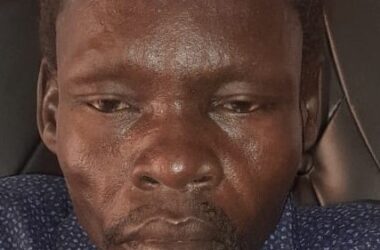Since its hard-won independence in 2011, South Sudan’s journey has been marred by a devastating trifecta of political instability, social fragmentation, and economic collapse. The promise of liberation has faded, replaced by a grim reality where power struggles, ethnic violence, and hyperinflation are the norm. In this landscape of disillusionment, new political forces emerge, each claiming to hold the key to a stable future. Among them, The Sovereignty Party presents itself not just as another political entity, but as a philosophy of governance. But can its core principle—sovereignty—genuinely address the nation’s deep-rooted problems?
The Core Tenet: Reclaiming Sovereignty
The Sovereignty Party, as the name implies, likely places the concept of national sovereignty at the heart of its manifesto. This goes beyond the simple definition of political independence. For a country like South Sudan, true sovereignty could be interpreted on three fundamental levels:
- Political Sovereignty: An end to foreign interference and a commitment to home-grown political solutions. This means moving beyond peace deals that are often brokered and enforced by regional and international actors, creating a perception of a rented peace.
- Economic Sovereignty: Control over national resources, particularly oil, and the diversification of the economy away from a crippling dependency on imports. This involves building national capacity and infrastructure to process and benefit from its own wealth.
- Social Sovereignty: The cultivation of a unified South Sudanese identity that transcends ethnic allegiance. This is the sovereignty of the people over divisive narratives, fostering a nation where citizenship comes before tribe.
Solving the Political Quagmire
South Sudan’s politics have been characterized by a winner-takes-all mentality, where control of the state is seen as the primary route to wealth and security for one’s ethnic group. The Sovereignty Party’s potential solution would be to champion a form of governance that decentralizes power.
By advocating for a truly federal system, power and resources could be devolved to states and communities. This would make the stakes of national politics less existential for every group and allow regions to manage their own affairs according to their local contexts. A sovereign state is a confident state that is not afraid to share power internally because its national integrity is secure. This model could dismantle the central government’s “prize” that factions are willing to go to war to win.
Healing Social Fractures
The social fabric of South Sudan is torn. Decades of conflict have created deep inter-communal distrust. A party focused on sovereignty must place national unity at the forefront. This involves:
- A National Reconciliation Process: Beyond truth commissions, this requires grassroots, culturally-informed effort to address historical grievances and trauma.
- Reforming the Security Sector: A sovereign nation requires a national army that protects all citizens equally, not a collection of militias loyal to individual commanders or ethnicities. The integration of forces into a professional, national body is paramount.
- Promoting Civic Nationalism: Education and public messaging that emphasize what it means to be South Sudanese—a shared history, a shared struggle, and a shared future—rather than what divides us.
Reviving the Economic Heart
Economically, South Sudan is not sovereign; it is vulnerable. Its budget is almost entirely dependent on oil revenues, which are subject to global price shocks and require transit through a neighboring country. The economy is dollarized, and local production is negligible, leading to a reliance on expensive imports.
A Sovereignty Party’s economic plan must be built on self-sufficiency.
This means:
- Agricultural Revolution: South Sudan has some of the most fertile land in Africa. Investing in large-scale farming to achieve food security is the first step to economic independence.
- Diversifying from Oil: Investing oil revenues into other sectors like infrastructure, education, and manufacturing to build a more resilient economy.
- Monetary Sovereignty: Strengthening the South Sudanese Pound to restore public faith and move away from dependency on the US dollar for local transactions.
The Inherent Challenges
The vision is compelling, but the path is fraught with challenges. The concept of sovereignty can be misinterpreted as isolationism, rejecting the international partnerships and investment necessary for development. Furthermore, the existing political elite, who benefit from the current fractured system, would fiercely resist any move to decentralize power and resources. The party would need to build a broad, cross-ethnic coalition to overcome these entrenched interests—a monumental task in itself.
Conclusion: Principle Over Promise
The question is not whether The Sovereignty Party has a magic bullet—it does not. No single party can instantly solve problems woven so deeply into the nation’s structure. However, its value lies in reframing the solution.
The Sovereignty Party offers a principle-based approach rather than just a set of promises. By making true sovereignty—political, economic, and social—its ultimate goal, it provides a north star for governance. If it can articulate this vision with credible policies, inclusive leadership, and an unwavering commitment to all South Sudanese people, it may not just be another party, but the catalyst for a much-needed national conversation about what it truly means to be a sovereign, prosperous, and united nation. The solution to South Sudan’s problems must ultimately be owned, designed, and implemented by South Sudanese themselves. In that essential truth, The Sovereignty Party might just be on to something.
The author, Mr. Joseph Kenyi Samuel can be contacted on email: mununs@gmail.com, and mob: Mob.: +211921648879



